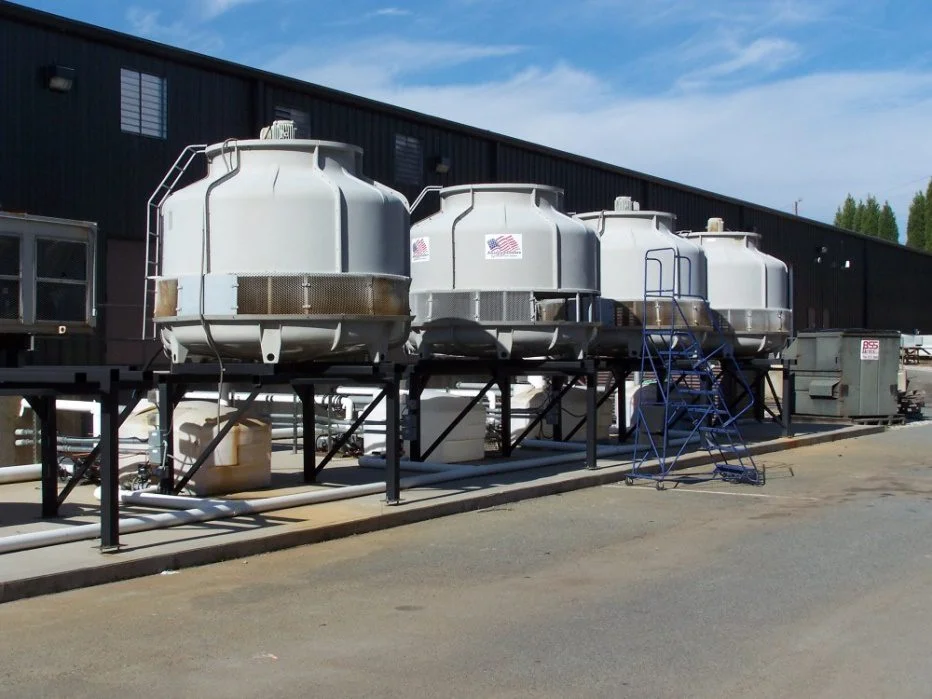Cooling Tower Water Treatment
Purpose of Treatment
If cooling tower water is left untreated, organic growth, fouling, scaling, and corrosion can reduce plant productivity, cause plant downtime, and require costly equipment replacements.
You can use Ultra-filtration Water Plant and Water Disinfection System for treatment of water.

WCSP Solution for cooling tower water treatment
WCSP provide cooling tower water treatment program and get it implemented by their qualified team. Water Care Services synthetic substances specialists give incredible assurance of cooling tower framework from different difficulties.
Water Care Services Pakistan offer specific treatment chemicals vary depending on the requirements of the cooling tower and quality/chemistry of the feed water. WCSP formulated corrosion and scale inhibitor chemical which protect the system from failure due to metal loss, heat exchange problems etc. We also formulate Biological Control chemical which inhibits any microbial activity in cooling tower water.
Problems of the Cooling water system
WCSP cooling water treatment chemicals target three key problems of cooling systems:
- Scale Deposition
- Corrosion
- Microbial Growth
- Scale formation can be either Mineral deposition or sludge deposition. Mineral scale accumulates due to dissolved salts of calcium, silicates etc while sludge scale formed on a deposition of suspended solids or biological debris. Scale and sludge deposition hinder the process of heat transfer, limit the flow of water and in result system loss their efficiency.
- Corrosion causes loss of metal which lead to failure in system various processes such as to disturb exchange of heat, recirculation of water in pipes etc besides that it also reduces the efficiency of the system by developing precipitate on heat transfer devices.
- Biofouling is also one major issue seen in the cooling system. Microbes like bacteria, algae and fungi multiple inside cooling towers and deposit there in form of sludge.
- Cooling tower makeup water intake
- Filtration and ultra-filtration
- Ion exchange/water softening
- Chemical addition for treating scaling/corrosion
- Side-stream filtration
- Blow-down treatment
- Langelier Saturation Index (LSI)
- Ryznar Stability Index (RI)
Cooling Tower Water Treatment refers to the process of managing and treating water in cooling towers to prevent issues like scaling, corrosion, and microbial growth. It ensures the efficient and safe operation of cooling systems in various industrial and commercial applications.
Cooling Tower Water Treatment is crucial to maintain the performance and longevity of cooling systems. Without proper treatment, issues such as scale formation, corrosion, and biological growth can occur, leading to decreased efficiency, increased energy consumption, and potential equipment damage.
Untreated cooling tower water can lead to problems such as scale formation on heat exchange surfaces, corrosion of system components, and the growth of bacteria like Legionella. These issues can reduce heat transfer efficiency, increase energy costs, and pose health risks.
Cooling Tower Water Treatment involves the use of chemicals and technologies to control the concentration of minerals, inhibit corrosion, and prevent the growth of microorganisms. It may include the use of biocides, corrosion inhibitors, scale inhibitors, and other specialty chemicals.
The main components include chemical dosing systems, filtration units, monitoring and control systems, and sometimes physical devices like water softeners. These work together to maintain water quality and protect the cooling system.
Filtration Water Plants are designed to handle water from diverse sources. The treatment process can be customized to address the specific impurities present in different water supplies.
The frequency of water treatment depends on factors such as water quality, system operation, and environmental conditions. Regular monitoring and testing help determine when treatment is needed, and adjustments can be made accordingly.
Yes, effective water treatment can contribute to water conservation by preventing the need for excessive blowdown (purging of water from the system). By controlling mineral concentration and other parameters, water treatment helps optimize water usage.
Yes, environmentally friendly or green options for cooling tower water treatment exist. Some systems utilize eco-friendly chemicals, and technologies like ozone or non-chemical methods, contributing to sustainability and minimizing environmental impact.
Yes, Cooling Tower Water Treatment can be tailored to meet the specific requirements of different cooling systems and industries. Customization allows for optimal performance and cost-effectiveness based on the unique characteristics of each application.
